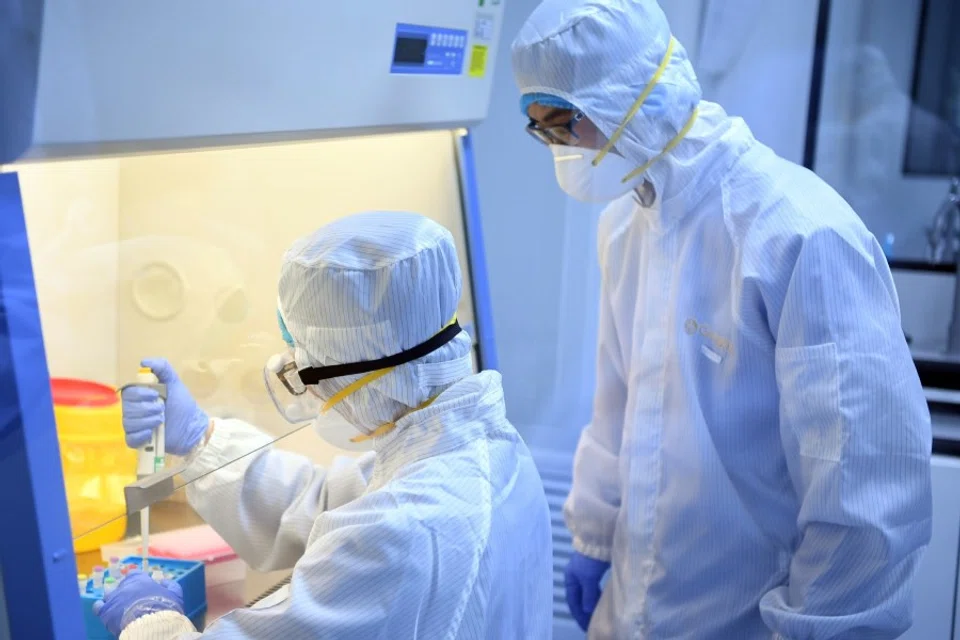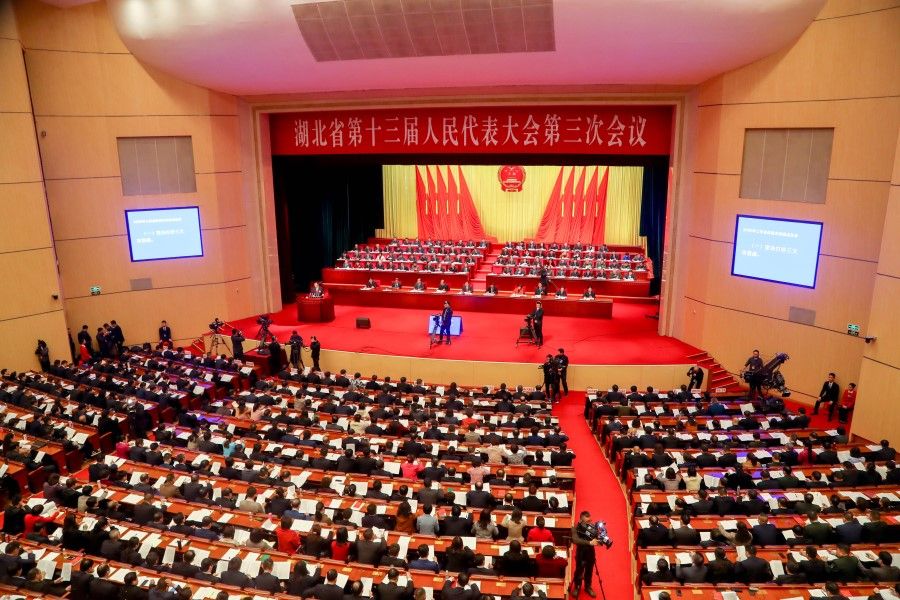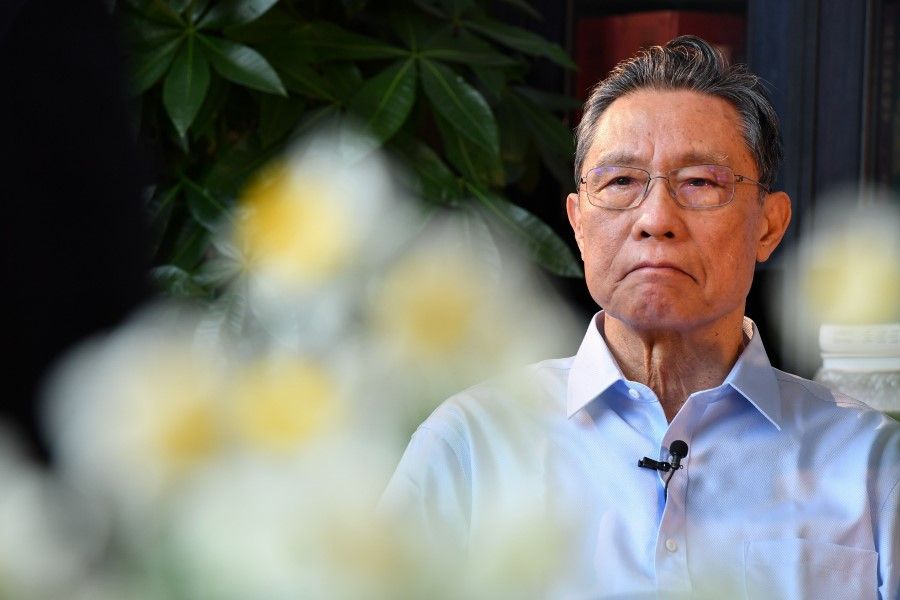Wuhan coronavirus: When will it end?

A few days ago, most people would not have expected China to welcome the Year of the Rat under the shadow of the Wuhan coronavirus.
To prevent the coronavirus from spreading, from 23 January, Hubei's Wuhan city, as well as surrounding Ezhou, Xiantao, Qianjiang, Huanggang, and Jingmen cities, announced a halt to transportation, as well as the closure of airports, train stations, and highways in and out of those cities: in other words, a lockdown.
In just a few days, the lockdown has expanded to neighbouring Henan, Anhui, and Hunan provinces. Beijing, at some distance from Hubei, has not imposed a lockdown, but has closed public venues such as cinemas, temples, and attractions. Various organisations and communities are also advising people to minimise going out in public. In a re-enactment of ghost towns during the 2003 SARS epidemic, the streets are quiet, and the past liveliness and bustle of Chinese New Year visiting is gone.
The lockdowns and strict control measures have not only dampened the festive atmosphere, but also inconvenienced people. While the New Year's eve (Chunwan) galas on CCTV and in various provinces and cities went on as usual, ordinary people were praying and wishing one another well, invoking the names of historical people such as Southern Song dynasty poet and military leader Xin Qiji (辛弃疾, qi ji meaning "shaking off illness"), Western Han dynasty military general Huo Qubing (霍去病, qu bing meaning "banishing disease"), and Qing dynasty politician Kang Youwei (康有为, kang meaning "health" and you wei meaning "accomplished").
However, few have complained that the control measures are too strict. On the contrary, the public has been critical that Wuhan city and Hubei province were unable to immediately take strict measures to control the spread of the coronavirus.

These criticisms are not without merit. At the Hubei National People's Congress meeting from 12 to 17 January, which saw over 700 attendees, there was little mention of the ongoing spread of the Wuhan coronavirus, much less effective control measures. Furthermore, after the meeting ended, there was a spike in the number of people infected, giving the public reason to suspect that the local authorities might have hidden the true figures to safeguard the "big picture".
Though lessons from the SARS epidemic of 2003 are still fresh in people's minds, history seems to be repeating itself in some ways, and the entire community is paying an enormous price. The authorities in charge of Wuhan city, Hubei province, and even China's National Health Commission clearly cannot be absolved of blame, while an in-depth review of China's health control system is also needed.
Of course, a measure that drastically affects people such as a lockdown is not an easy decision. But now is the time to be resolute and stop the coronavirus from spreading. From that perspective, it is not going overboard for Hubei and other areas in China to take tougher control measures now than during the SARS period.
Still some way to go
As for how long the Wuhan coronavirus will continue to spread, experts have given a forecast.
Well-known infectious diseases expert Gui Xi'en of Zhongnan Hospital at Wuhan University feels that the current situation is tough and the control measures are unprecedented. The number of new cases is still rising, but it should not take too long for the epidemic to peak and subside, and the "u-turn" should happen in a matter of weeks. The number of cases in Wuhan is projected to possibly start falling by the 15th day of the first lunar month, that is, 8 February.

Zhang Wenhong, head of Shanghai's medical expert team, also thinks that since Wuhan has taken measures such as limiting travel, halting public transport, educating the masses and preparing sufficient beds and medical resources from all over China, it can be expected that within two weeks, all of the patients who have symptoms or are about to have symptoms will be able to get treatment. Subsequently, after two to four weeks of treatment, most patients will have recovered. "If so, it is not a pipe dream to end the war against the Wuhan coronavirus within two months."
The experts' projections may not be totally accurate, but they do have a scientific basis. In comparison, scaremongering online rumours such as pulmonologist Zhong Nanshan getting infected, that the situation in Shanghai has gone out of control, that Beijing will implement martial law, and so on, are all not reliable.
In the face of this epidemic, hiding facts out of political considerations or thinking that "everything will be fine" should of course be criticised, while baseless rumours are not worth believing. The important thing is that even as the authorities adopt strict control measures, they also have to quickly and accurately release information on the epidemic, taking transparency and the public's right to know into consideration. At the same time, those officials who shirk their duty also have to be held accountable.
When SARS hit in 2003, people were panicky, but the virus was completely under control in a few months. Now, all of China is being called to action again. Its economic and technological strength is far greater than it was back then. Controlling the spread of the Wuhan coronavirus and cutting off its channels of dissemination should not take longer than it did to bring SARS under control.
Hong Kong expert: Wuhan coronavirus might become a global epidemic
While leading academics in mainland China feel that the Wuhan coronavirus will hopefully peak within ten days, Hong Kong academics warn that it might become a global epidemic, with confirmed cases peaking only in April or May. Chongqing may also possibly be the next city to be heavily hit by the coronavirus.
According to reports from Ming Pao, RTHK, and Caixin, Dr Gabriel Leung - dean of Hong Kong University's (HKU) medicine faculty and member of Hong Kong's virology expert consultant team - said besides Wuhan, major cities in mainland China such as Chongqing, Beijing, Shanghai, Shenzhen, and Guangzhou could also see sustained domestic human-to-human transmission of the coronavirus, with higher numbers than SARS in 2003.
At a press conference at HKU on 27 January, Dr Leung said according to a mathematical model based on figures as of 25 January, each patient can potentially spread the coronavirus to 2.13 people and the number of patients doubles every 6.2 days. Going by those figures, as of 25 January, there are an estimated 25,630 confirmed cases in Wuhan city; if cases in the incubation period are included, that figure goes up to 43,590.

Dr Leung estimates that the epidemic will peak between April and May. As Chongqing (population 30 million) has the closest transport links to Wuhan and the highest human flow, cases will peak there about one or two weeks earlier than in other provinces and cities.
Dr Leung estimates a peak of 150,000 new cases a day, with 50,000 new cases in Wuhan, after which the coronavirus will slowly subside between June and July.
He said this forecast only takes into account the lockdown and not other public healthcare interventions, describing it as a more "pessimistic" projection.
However, he warned that if the projections are accurate, large cities may see sustained domestic transmission and not just imported cases. When that happens, if patients fly to other countries, more confirmed cases will be exported all over the world.
Dr Leung added that the most watertight measure is to get all close contacts of suspected cases to go into immediate quarantine during the testing period, but as cases increase it will be difficult to keep up, and may even backfire as close contacts find quarantine measures hard to accept.
Pulmonologist Zhong Nanshan: Coronavirus should peak in a week or ten days
Renowned pulmonologist Zhong Nanshan feels that the Wuhan coronavirus should peak in the next week or ten days, after which there will not be a jump in confirmed cases.
Xinhua yesterday released a recent nine-minute video interview with Chinese Academy of Engineering member Dr Zhong. He noted that there have not been many super-spreaders of the Wuhan coronavirus, and the Chinese government promptly took top-level nationwide control measures such as calling off large-scale events to reduce mass gatherings, so the coronavirus only broke out in Hubei and Guangdong, and not in multiple locations all over China like SARS in 2003.
Dr Zhong said, "As for when the Wuhan coronavirus will peak, that's hard to say for sure. But I think it should peak in the next week or ten days, which means there will be no more jump in confirmed cases."

People are making their Chinese New Year return trips in mainland China, but Dr Zhong does not think it will pose a big problem in controlling the Wuhan coronavirus. "Ten to fourteen days is a good period for quarantine and observation while people are out for Chinese New Year. Once the incubation period is over, those who have symptoms will be treated promptly in hospitals wherever they are, while those who do not show symptoms are not ill. So there will not be a major spread due to these return trips. But the checks cannot stop."
When SARS broke out in 2002 to 2003, Dr Zhong was the director of the Guangzhou Institute of Respiratory Disease (GIRD). He provided the Department of Health of Guangdong Province with information and material so that it could promptly come up with a course of action. The GIRD also took in patients and found corticosteroids to be an effective treatment.
This month, China's Ministry of Science and Technology has worked with the National Health Commission and the National Development and Reform Commission to form a team of 14 experts led by Dr Zhong to study the Wuhan coronavirus.
Dr Zhong said, "Scientists are looking for the intermediate host of the Wuhan coronavirus. It was first discovered on a type of bat, but the intermediate host is still unclear."
Dr Zhong pointed out that fever is still the classic symptom of the Wuhan coronavirus. So far, there is no targeted medicine for it, but researchers and medical workers have come up with several solutions, including the most basic but most effective method of early detection and quarantine, where those who find themselves infected immediately go into quarantine. Coupled with improvements in life-preserving technology, the mortality rate of the Wuhan coronavirus will go down.

